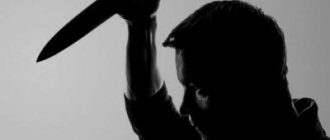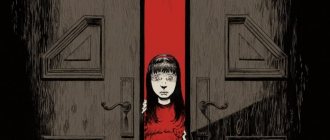Fear of external noises
It is natural for a person to be afraid of loud sounds, to shudder and look back in the direction of the noise.
This is a defensive reaction to exposure to a sharp external noisy stimulus. The reflex is developed from birth: a newly born baby reacts to external noise by spreading its legs and arms in different directions. Fear of noises is normal unless it becomes an uncontrollable phobia. It is also called ligyrophobia and acousticophobia. Sometimes these terms are used as synonyms, although there are inconsistencies. Literally translated, phonophobia is the fear of loud sounds. Acousticophobia is auditory-coordinated fear. Ligyrophobia is the fear of extraneous noises and devices that produce them.
Humans react to loud noises from birth
Treatment of ligirophobia
Before any appointments, the specialist will conduct a preliminary examination. Treatment tactics are determined individually, since each specific case has its own characteristics and nature of origin.
Fighting fear on your own
In a mild form, the fear of loud sounds can be overcome on your own. Awareness and internal motivation will help in solving the problem. Choose a set of relaxation exercises and breathing exercises, regularly practice meditation against fear and panic attacks:
Your task is to take control of fear. For your peace of mind, you can periodically consult with a psychologist to monitor the dynamics.
More complex cases can only undergo stable remission with the participation of a specialist. A psychologist or psychotherapist will determine the tactics and sequence of therapy.
Drug treatment
The medicinal aspect when working with fear of loud sounds is aimed at the specialist’s selection of tranquilizers and antidepressants. To reduce anxiety levels, Hydroxyzine, Buspirone or Phenazepam are prescribed. From a series of antidepressant drugs, Duloxetine, Milnacipran, Bupropion are used. Please note that the names of medications are given for reference. will not lead to the desired result.
Their use will be systematic. In addition, an additional one-time dose of a sedative will be recommended. Tincture of valerian or motherwort will help before known contact with the source of an irritating attack. For example, a noisy place or a situation that resembles a traumatic factor.
This part of therapy is aimed largely at working with the immediate manifestations of the disease. Reducing symptoms and minimizing the number of crisis outbreaks will improve the person's condition. But addressing the source of the problem itself is no less important.
Psychotherapy
Psychocorrection is precisely aimed at strengthening an unstable psyche. Eliminating the cause itself gives a favorable prognosis that the phobia will disappear in the future.
Hypnosis and neurolinguistic programming have a positive effect on minimizing unconscious negative attitudes. Psychologists consider this solution to the problem “from the inside” to be the most effective. In addition, you can get advice from an experienced specialist without leaving your home. Psychologist-hypnologist
The fear of loud sounds is called phonophobia. Another term is acoustic phobia. With this disorder, a person experiences fear if he hears or expects a certain sound.
Phonophobia - fear of loud noises
Fear of loud noises
Intolerance to loud noise and fear of its possible occurrence (lygrophobia) are often associated with an exhausted state, neurasthenia, psychasthenia and the notorious VSD. With the listed conditions, there is increased sensitivity in general, and special sensitivity and suspiciousness in relation to everything related to health and the physical body.
In addition to increased fatigue and a tendency to become agitated by the slightest stimuli, hyperstimulation of any of the senses provokes painful sensations and fear of them. This is quite enough for the development of a phobia. Also, a loud sound is unconsciously associated with something big and menacing. Even a compact device, such as a compressor or speaker, may seem to a sensitive person to be much larger in size than it actually is and pose an unknown danger.
Treatment of fear of loud sounds with medications is recommended after consulting a doctor, who will determine and prescribe a specific cycle of therapy.
- Tranquilizers that promote calm when feeling restless (Hydroxyzine, Midazolam, Buspirone and Phenazepam).
- Antidepressants that affect mental function (Bupropion, Duloxetine, Venlafaxine and Milnacipran).
- Sedatives, herbal medicines that reduce emotional stress (tincture of motherwort or valerian).
The antidepressant Venlafaxine is sometimes prescribed for phobias
. Psychological therapy is also used to treat fear of loud sounds.
- Hypnotic effect. Most people are wary of hypnosis based on negative reviews. If you use the services of an experienced specialist, you can get rid of your fear of noise in a short period of time.
- Sound treatment. In this case, the reverse action method is used. Calm melodies alternate with sharp and elevated ones.
Phonophobia is not a critical illness, but still you should not leave it to chance, since nervous tension has a negative impact on the psychological state. In this case, it is imperative to protect yourself from the fear of loud noises.
Causes and symptoms of phonophobia
Phonophobia belongs to the class of anxiety-phobic disorders and almost always its development is caused by severe overstrain of the nervous system as a result of a series of chronic stresses, as well as diseases such as psychasthenia, neurasthenia, and VSD. The development of a fear of loud sounds is also influenced by a person’s specific character. Most often, this disease affects people who are unbalanced, suspicious, emotionally unstable, prone to exaggerate, pessimistic and have low self-esteem.
Phonophobia causes people suffering from it discomfort, severe mental and physical suffering, significantly worsens the quality of life and impoverishes it. They are afraid to go out, ride in their own or public transport, fly on airplanes, and refuse work that involves constant noise or harsh sounds. In severe cases of the disease, phonophobes choose voluntary isolation, since only at home they can control the sounds that surround them.
If it was not possible to avoid the influence of the stimulus, an attack of phobia is accompanied by uncontrollable, constantly growing fear, turning into panic, a desire to cover your ears, scream, hide somewhere, anticipation of an approaching collapse, fear for your health and life, and the following physical symptoms:
- tachycardia;
- dizziness;
- headache;
- lack of air;
- heavy sweating;
- trembling of limbs;
- muscle cramps;
- severe nausea;
- short vomiting.
This state is enhanced by the fear that people nearby will notice this and the feeling of embarrassment due to their weakness. It is also characteristic of phonophobia that the attack passes as soon as the irritating sound disappears. Patients calm down mentally, and the manifestations of physical symptoms weaken.
But the disease cannot be neglected; if left untreated, fear of loud sounds provokes severe nervous exhaustion, the development of depression, and sometimes addiction to alcohol and drugs.
Development factors
Screaming, high-pitched speech, noisy music in the building, and television on are reasons for anxiety and a search for a quieter space for a person suffering from phonophobia. For such people, someone talking loudly is an irritant, instilling a feeling of insecurity and discomfort. Fear of loud sounds in humans causes outbursts of panic.
A complex variant of acoustic phobia is the fear of vocal sounds; it develops against the backdrop of difficult childhood years (insults and mockery, unflattering statements in one’s direction). A child's fear of loud noises can be influenced by parents talking in a raised voice. For such a child, the sound of someone's voice seems like the next dose of insult and coercion.
Treatment methods for acoustic phobia
The exact causes of acoustic phobia in people remain unknown. Scientists believe that in most cases when it comes to this type of phobia, it accompanies some kind of mental illness. As practice shows, they should be looked for in childhood. Perhaps it was then, as a child, that the patient became very frightened by a loud sound, siren or scream. Before starting to study this problem, doctors ask the primary question - what scares a person:
- loud noise;
- a feeling of fear that sounds will force him to commit any illegal actions;
- fear of events that this or that noise may foreshadow;
- perhaps fear of the silence that comes after loud sound;
If a patient is diagnosed with a mild form of acoustic phobia, he may well engage in self-medication and get rid of fears, having a strong desire. When the manifestations are more serious and physical indicators appear, you cannot do without the help of a qualified specialist. An experienced doctor with a timely approach to solving the problem guarantees complete and prompt relief from this disease.
Having diagnosed the psychological disease phonophobia, doctors prescribe the most effective treatment – hypnosis. First of all, hypnotherapy is carried out while taking medications and talking with a psychotherapist, possibly in a group.
Positive results can be achieved using the technique of neurolinguistic programming (NLP). Cognitive behavioral therapy is also recommended, which teaches the patient not to be afraid of noise and loud sounds. A person learns to control his behavior and state at the moment when he hears frightening sounds.
Fear of quiet and specific sounds
Phobias associated with quiet sounds have deeper and more complex psychological roots. Often such fears indicate more severe disorders, in which, at a minimum, painful fantasies are involved. A quiet sound may unconsciously be associated with some unpleasant expectation, often of a far-fetched nature.
For example, a quiet ringing is associated with the sound of a distant bell, foreshadowing trouble. Although there may be simpler associations. If a teenager, when left alone at home, liked to do something reprehensible from the point of view of adults, over time he may develop the habit of listening intently and looking for signs of the approach of adults, such as footsteps or the turning of a key in a lock.
Signs of a phobia
People who suffer from a phobia have to limit their presence in public places. The fear of very loud sounds spoils a person’s entire existence. They try to be outside less often. Visits to stores, entertainment events, and catering establishments are unrealistic. In work life, it also happens that one rejects specialties that are accompanied by noise or various sharp sounds.
Fear of loud noises, like most anxiety disorders, has typical symptoms and progresses as a result of exhaustion and weakening of the human nervous system. Prolonged nervous tension, heightened emotionality, and suspicion contribute to a phobia of loud sounds and extraneous noises. We will consider the causes and symptoms of a mental nature below.
- The desire to avoid. The patient makes an effort to stay away from noise-producing environments and tries to turn off the volume on devices before using them.
- Feeling of shame and humiliation. During an outbreak of fear, all emotions go out of control, you want to hide from loud noise.
- Bad habits. A constant fear of sounds in a person contributes to the formation of a depressive state, mental exhaustion, and occasionally leads to alcohol and drug addiction.
Signs of a physiological nature that occur as a result of involuntary excitement of the nervous system to a stimulus (loud, extraneous noise):
- increased heart rate;
- labored breathing;
- spasmodic contractions;
- feeling of disgust and gag reflex;
- sweating;
- lightheadedness, fainting.
After eliminating the noise, the person’s internal state normalizes. The stimulus in the form of sound subsides, and the physiological causes of the problem fade away. The phonophobe tries to leave the threatening room for fear of the loud sound occurring again.
Feelings of shame often accompany phonophobia
The fear of loud noises is called phonophobia. A person suffering from phonophobia may be afraid of loud voices, use transport, or complain about intolerance to noise. If the noise is annoying and not frightening, then it is ligirophobia (a type of phonophobia).
Fear of sounds makes a person avoid public places, and he prefers to stay at home in a familiar environment. Gradually, fear develops into social phobia, since, avoiding loud and sharp sounds, a person begins to fear people as a source of possible noise. An unexpected sharp sound can trigger a panic attack.
It is generally accepted that the causes of phonophobia can be:
- Mental trauma resulting from a tragedy experienced by a person, which was accompanied by loud, sharp sounds. Such as military operations, terrorist attacks.
- Frequent viewing of horror films in which the most frightening moments are accompanied by sound techniques. As a result, any loud noise in the future can be perceived as a threat, causing fear and fright.
- Chronic stress.
Some experts argue that the occurrence of phonophobia can be influenced by heredity, age, and personality type.
Fear of loud sounds in people with a visual vector may be accompanied by:
- panic attacks;
- arrhythmia (in combination with anal vector);
- fainting;
- nausea;
- Uncontrollable fear of loud noises, as well as their source. For example, when seeing a balloon being inflated, the viewer may begin to panic, as the balloon may burst. The anticipation of this causes involuntary fear.
People with a sound vector experience intolerance to noise, voices, and irritation from them.
Owners of the visual vector are emotional, sensual natures with a rich imagination. The strongest emotions that viewers experience are love and fear of death. Their whole life is a “swing” between fear and love. What emotion the viewer receives from depends on his state of mind.
In essence, fear of loud sounds manifests fear for one’s life, which “wakes up” from loud, sharp sounds. Being in a state of fear, the viewer is focused on his emotions and experiences. Fears for himself and his life. He heard a sharp sound, and his imagination immediately pictures monsters who want to eat him and take his life. When frightened, the viewer experiences vivid, negatively colored emotions.
This fear pushes viewers to create emotional connections with other people, where it can transform into compassion and love. It was visual people who taught all of humanity to love each other. But we do not always find the right path to develop and realize our properties and desires. We suffer from this and are afraid of everything.
In the modern world, the viewer can realize himself in the profession of an actor, singer, artist, designer and other creative professions. You can become a volunteer, helping seriously ill, incurable people or lonely old people and simply those who need participation and empathy.
A sound artist was born to listen to the world around him in order to reveal the intention, the meaning of life. Therefore, he has supersensitive hearing - he is able to hear what others cannot hear. With proper development and implementation, the sound specialist does not experience fear of loud sounds and does not focus on noise. Although silence is preferable for him.
A child with a sound vector can be seriously traumatized by loud sounds, screams and even whispers if the meaning of the words is negative. The psyche is protected, and the sound player closes itself off from the outside world. With severe trauma, serious diseases can arise - autism, schizophrenia, moral degeneration, hearing loss.
But more often than not, the sound engineer simply stops listening to this screaming world around him, and any sounds, even not very loud ones, become unbearable. Extraneous noise can cause aggression. Even the monotonous buzzing of appliances, household appliances, ticking clocks, etc. can be annoying. Avoidance of anything that may sound or make noise is mistaken for fear. Read how this happens here.
To hide from hateful sounds, very often owners of a sound vector use earplugs or headphones with loud, deafening music. Just not to hear the world outside. Read more: “Loud noises irritate me, or Why I can’t stand noise.”
The realization of any vector is the fulfillment of its desires. The sound vector is the only vector whose desires are immaterial. The sound artist is looking for answers to the questions: “Who am I? Why am I? What am I for? What is the meaning of all this?” He wants to know the secrets of the universe.
In previous centuries, sound was realized in philosophy, religion, poetry, literature, classical music, and science. It was a kind of search for meaning, a way to understand and explain how everything works. Today, the volume of the psychic has grown, and they are no longer enough to fill the voids. The modern sound artist has to reveal the human psyche.
Having withdrawn within himself, the sound artist comes to negative states: apathy and depression. After all, it is impossible to reveal the psyche of another person by cutting oneself off from him.
Noise phobias in dogs. How to help?
Contents hide
Shortly before the New Year holidays, a real nightmare begins for many dog breeders. Bursts of firecrackers, fireworks, festive cannonades and fireworks literally drive their pets crazy. But even after the holidays, life often does not return to its usual rut. Some dogs suffer from the so-called noise phobia, that is, they are panicky afraid of any more or less loud and sharp sounds. Needless to say, how many problems fall on the shoulders of the owners, and the animals are in a state of permanent stress.
What sounds are dogs usually afraid of? With holidays and their fireworks, everything is clear. But our life is not woven from holidays alone. So, your dog may avoid heavy traffic, flinch at the sound of car horns, squealing brakes, or an alarm going off. Natural phenomena, such as thunder, contribute. Let us emphasize: it is not at all necessary that absolutely all dogs are afraid of thunder. But, perhaps, each animal has its own “unpleasant” sounds, and here everything is very individual. It would be nice for owners to know which noises their pet reacts to most painfully. We have to learn to live with this somehow.
What factors influence the appearance of noise phobias? Experts tried to answer this question. As it turns out, some breeds, such as herding dogs, are predisposed to noise phobias. A typical example is the Scottish Sheepdog (collie). As a rule, all puppies are afraid of loud noises, but as they grow, the problem lessens. Older dogs can also develop noise phobias. Let's not forget that our four-legged friends have much more acute hearing than you and I. A person and a dog will perceive the same noise differently: a person may not pay attention at all, but in the dog’s ears it will respond with serious pain. Moreover, the range of frequencies perceived by a dog’s ear is an order of magnitude wider, so dogs can hear things that humans cannot hear.
What should you pay attention to? Take a closer look at your pet. Here are the most typical behaviors that characterize noise phobia. Your dog shakes, trembles, refuses to go anywhere, hides, hides (especially in hard-to-reach places, for example, under the bed), suffocates from an imaginary lack of air, whines, urinates and defecates indoors, tries to dig right in the house or apartment (for example , on the rug in the hallway), panics, runs around the house randomly, shows his teeth.
If you notice something like this, please do not punish your dog. It is necessary to learn to separate manifestations of noise phobia from behavioral problems that require correction. In this case, we observe the body’s defensive reaction to severe fear or fear. Punishment will confuse your pet; he will not understand why he was punished, what he did wrong. A completely different question is to deal with your pet’s fears and phobias and try to help overcome them.
Should I calm, caress, or hug my dog? It would seem quite logical to hold the dog close to you, reassure and comfort him. But you shouldn’t do this: seeing the owner’s reaction, the pet will become convinced that something terrible has happened. The phobia will not go away - it will only gain a foothold. On the contrary, behave absolutely naturally, speak in an even and measured voice, and do not panic yourself.
If you are the happy owner of a puppy or young dog, try to immediately introduce your pet to the large and varied world of sounds. Demonstrate different situations to the puppy, teach him not to be afraid of the sounds that accompany them. Don’t make the common mistake of protecting your pet from any more or less loud sounds. And let rock music become not your enemy, but your assistant, within reason, of course. Let the puppies perceive the world in all its diversity, including sound.
What else can you do? Perhaps your most important task is to act as a guarantor of your pet’s safety, to give him a sense of security in the face of any danger, real or imaginary. Knowing your friend’s “love” for noisy fireworks, you should not take him with you to such events. On the contrary, make him some kind of cozy dark den, cover it with mattresses or blankets (they absorb some of the sounds). However, it is not a fact that the dog will use this temporary shelter. If the dog just crawled under the bed, do not interfere or drag him out by force.
In some cases, new toys, games or entertainment help. Some owners use “noise against noise” tactics. The method works when the dog, for example, is afraid of the sounds of festive cannonade, but is susceptible to loud music. Turn on your stereo with the volume set to just above medium. Just warn your neighbors about this!
During the New Year holidays (remember what we said about the nightmare), all the main events take place in the dark. There is an opportunity - be sure to go with your pet for a long walk during the day, “wind up” him. Thus, there will simply be no strength left for violent reactions.
Is there a cure for noise phobia? In most cases, the problem can be corrected and positive dynamics are demonstrated. Be sure to get advice from a professional animal psychologist. If this is not possible, talk to your veterinarian. Perhaps the doctor will give some valuable advice suitable specifically for your case and prescribe sedatives.
We repeat: be sure to distinguish between the protective reaction of your dog’s body and behavioral problems (disobedience).
Original publication : My Dog Is Scared Of Noises – All Noises, Help! Source: pets4homes.co.uk Photo: pixabay.com
Fear of the sound of voices
This disorder most often occurs in people with difficult childhoods. Children who are constantly bullied by their peers or the adults who care for them stop expecting anything good from human words. On the contrary, the sound of someone's voice foreshadows another humiliation or beating. This can be especially noticeable if the interlocutor has a loud voice.
Loud speech can sometimes lead to a state of confusion and prostration. More often this happens to women who were yelled at by their fathers or older brothers in childhood, or by their husbands in early youth. This also includes fear of one’s own voice. Outcast children usually got used to staying in the shadows and remaining silent, so as not to inadvertently arouse dangerous interest from others in their own person.
Growing up, such children not only do not have sufficient communication skills, but also tend to be frightened by the sound of their own voice. Sometimes an irrational fear of the need to communicate can result in bizarre speech disorders. With such disorders, a person can talk to himself perfectly well, but when he goes out in public, he “forgets” the words.
More precisely, he can say them in his head, but not out loud. People are usually embarrassed to see a doctor with such disorders. And not all doctors will be able to delve into the intricacies of what is happening, limiting themselves to advice “not to let it get to you” and sedative pills. Both the first and second are completely meaningless, this is clear.
Fear of the alarm sound
This fear stands apart. It is closely associated with several experiences and beliefs. Firstly, sensitive people are frightened by the sharp sound of the alarm clock itself. They pay great attention to the melody that wakes them up in the morning. As a rule, they try to find or even create a sound file on their own that begins with a barely audible and rare beeping, carefully increasing the volume and eventually turning into a loud melody - just in case, so as not to oversleep.
But it's not that simple. The alarm clock is usually set before a work day, which means tomorrow there will not only be limited sleep, but also, possibly, a large and responsible workload. It would be time to get some sleep, but as luck would have it, the greater the need to sleep, the more difficult it is to succeed. Waiting for the alarm to go off can turn into an obsessive nightmare that prevents you from falling asleep at all.
The situation is further complicated by elements of self-flagellation for the fact that “everyone is like a person, and only I am alone...” Well, the rest of the text. An important factor is the hidden experience of loss of control in a dream. If we don’t get carried away by something that absorbs our attention, then in reality, as a rule, we will never miss the right time that we are waiting for.











